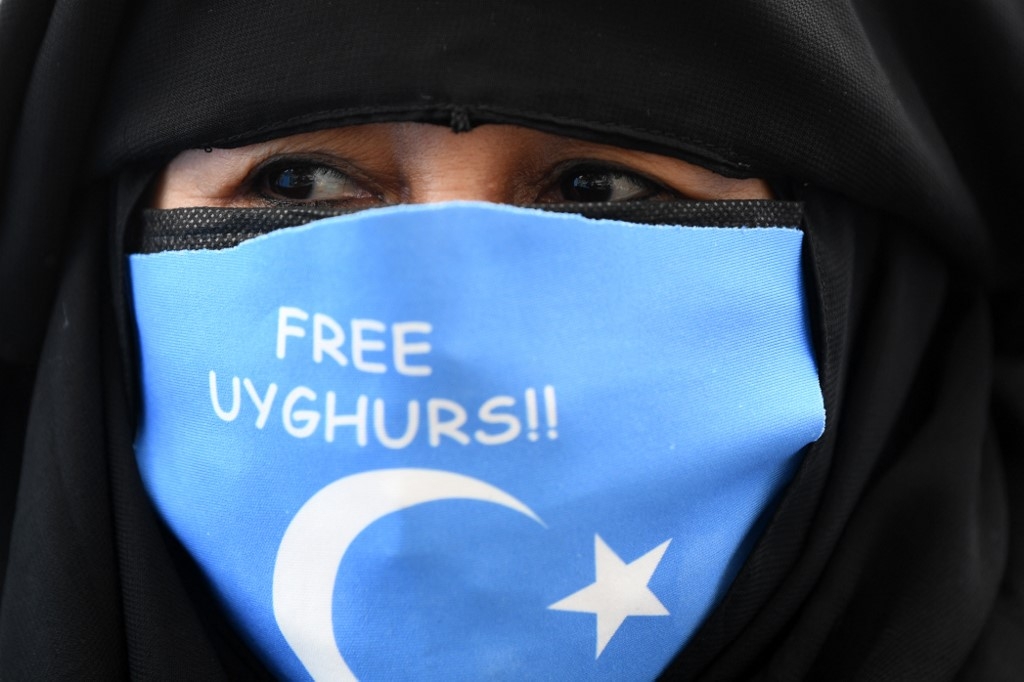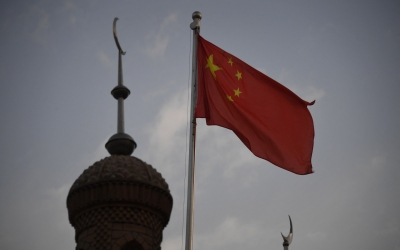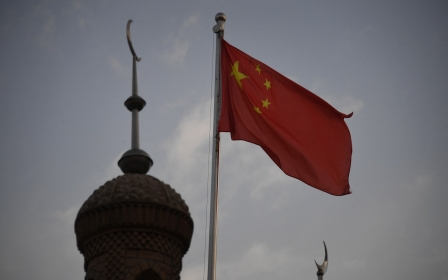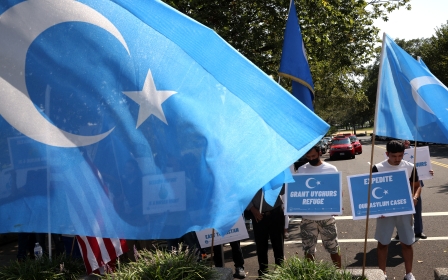Elite Chinese police college drew on UK's Prevent strategy for Uyghur policy

A new report has found that the London Policing College (LPC) has declared partnerships with eight universities in China, at least some of which have ties to policing in Xinjiang, where Muslim minorities have faced brutal treatment.
LPC is a private UK company that provides police training internationally and receives UK taxpayer money for some of its work.
Among the institutions highlighted in Tuesday's report, compiled by the rights group Freedom from Torture, was the Beijing-based People’s Public Security University of China (PPSUC), the country's elite policing university, which the report says focuses heavily on counter-terrorism training and learning about the UK’s own Prevent strategy.
The PPSUC engages in training cooperation with Xinjiang Police College and the Public Security Bureau of the Xinjiang Production and Construction Corps, which were sanctioned by the United States for their roles in human rights violations in 2020. The latter was also sanctioned by the UK in 2021.
Freedom from Torture said the LPC's partnership with the PPSUC appeared "at risk of being exploited by China to lend legitimacy to "counter-terrorism" policies which have seen minorities in Xinjiang sent to brutal internment camps for reasons as absurd as having a beard".
Entitled, "Dangerous Liaisons: UK partnerships with Chinese policing institutions linked to crimes against humanity in Xinjiang", the report found that the LPC, which has close ties to the UK police, has received UK Overseas Development Assistance funding via the British Council China for its partnerships with Shanghai Police College and Hunan Police Academy.
Hunan Police Academy declares that it has a cooperative relationship with Xinjiang Police College, which was sanctioned by the USA in 2019 for its role in human rights violations, and its website shows evidence of training exchanges between the two institutions.
'Genocide'
The Chinese government is accused of detaining more than one million Uyghurs and other Muslim minorities in Xinjiang, and subjecting them to abuses that some have labelled a "genocide". China denies the allegations of abuse.
In its report, Freedom from Torture wrote: "In the context of egregious human rights violations perpetrated by police in Xinjiang, the risks posed by any UK-China police partnership cannot be underestimated.
"As an absolute minimum, any proposal for such partnerships should be treated with extreme caution and intense scrutiny.
"Links revealed in this report between LPC’s Chinese partners and crimes against
humanity in Xinjiang make this crystal clear."
The rights group also pointed out that the LPC had received UK taxpayer money at the same time that the UK government had condemned the Chinese government’s actions in Xinjiang.
The report comes on the same day that the UK's Guardian newspaper reported on leaked draft extracts from a review of the Prevent strategy which said the government’s counter-terrorism programme had been too focused on right-wing extremism and should now crack down on Islamist extremism.
The review said there had been a “double standard” approach to tackling different forms of extremism, the Guardian wrote, with individuals targeted for expressing mainstream right-wing views because the definition of neo-nazism has expanded too widely, while the focus on Islamist extremism has been too narrow.
The long-delayed and highly contentious review of Prevent by William Shawcross, a former head of the UK's charity watchdog, is expected to be published in the next few weeks.
Peter Fahy, the former police lead for Prevent, told the Guardian that the extracts of the review suggested Shawcross’s findings were an unwarranted attempt to “politicise counter-terrorism policing” and it was “quite dangerous to play off one ideology against another”.
UK expertise
In February, the People’s Review of Prevent, which describes itself as an “alternative” to the government’s report, raised its own concerns about Prevent-related work in China, given the situation in Xinjiang.
The report highlighted a one-day event in Beijing, organised by the Royal United Services Institute, a British defence and security think tank, described by the UK's foreign office as "bringing together UK experts on CVE (Countering Violent Extremism) with Chinese officials and academics working on these issues in Xinjiang to demonstrate the effectiveness of UK best practice in CVE and identify ways this can be adopted in China".
The event, which took place in 2016, received a budget of nearly £19,000 ($24,000) from the UK foreign office.
The People’s Review of Prevent was conducted by Layla Aitlhadj, the director of Prevent Watch, a campaign group that supports people affected by the strategy; and John Holmwood, an emeritus professor in sociology at the University of Nottingham, and is backed by human rights campaign groups and Muslim community organisations.
Middle East Eye propose une couverture et une analyse indépendantes et incomparables du Moyen-Orient, de l’Afrique du Nord et d’autres régions du monde. Pour en savoir plus sur la reprise de ce contenu et les frais qui s’appliquent, veuillez remplir ce formulaire [en anglais]. Pour en savoir plus sur MEE, cliquez ici [en anglais].





